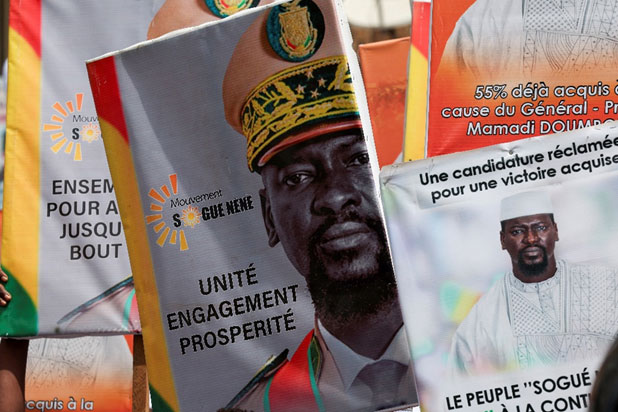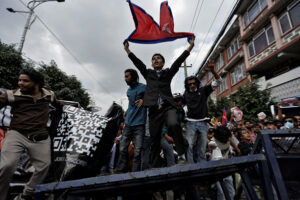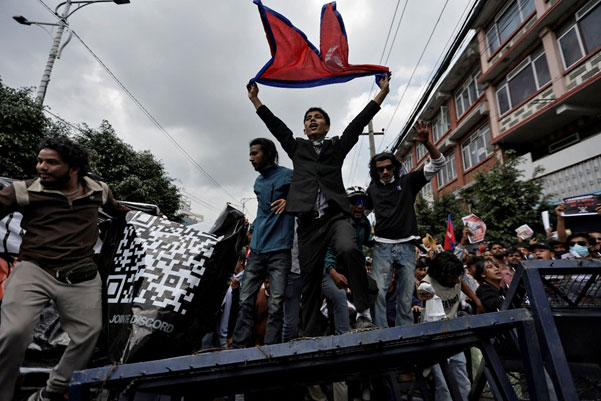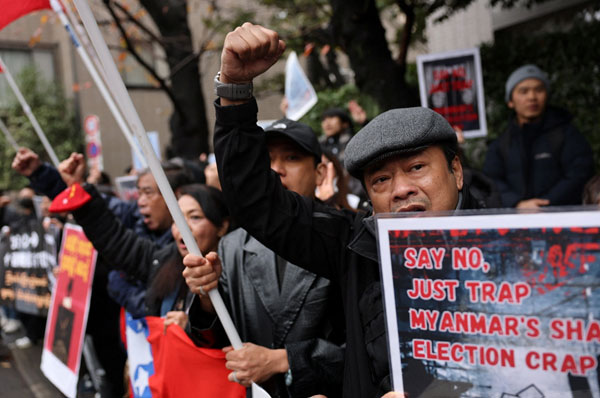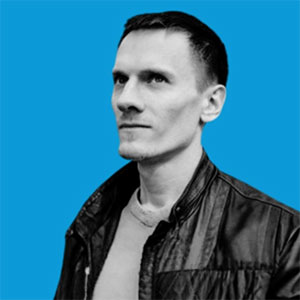
Active Citizens, Civil Society, Crime & Justice, Europe, Featured, Gender Violence, Headlines, Human Rights, Press Freedom, TerraViva United Nations
–
CIVICUS speaks with Belarusian activist, blogger and journalist Mikola Dziadok about his experiences as a two-time political prisoner and the repression of dissent in Belarus. Mikola was jailed following mass protests in 2020.

Mikola Dziadok
Amid continued repression, Belarus experienced two limited waves of political prisoner releases in 2025. In September, authorities freed around 50 detainees following diplomatic engagement, and in December they pardoned and released over 120, including Nobel laureate Ales Bialiatski and opposition figure Maria Kolesnikova. Many were forced into exile. Human rights groups stress that releases appear driven by geopolitical bargaining rather than systemic reform, with over 1,200 political prisoners believed to remain behind bars.
Why were you arrested following protests in 2020?
I was arrested because I was not silent and I was visible. During the 2020 uprising, I ran Telegram and YouTube channels where I shared political analysis, explained what was happening and gave people advice on how to resist repression. I talked about strategies to protect ourselves, counter state violence and survive under authoritarian pressure. The regime viewed this as extremely threatening.
By that time, I had around 17 years of experience in the anarchist movement, which is a part of a broader democratic movement in Belarus. But most people who joined the protests weren’t political at all: they’d never protested before, never faced repression, never dealt with police violence. They were desperate for guidance, particularly as there was an information war between regime propaganda, pro-Kremlin narratives and independent voices.
Authorities made a clear distinction between ‘ordinary people’ who apologised and promised never to protest again, who were released, and activists, organisers and others who spoke publicly, who were treated as enemies. I was imprisoned because I belonged to the second category.
What sparked the 2020 uprising?
By 2020, Belarus had already lived through five fraudulent elections. We only had one election the international community recognised as legitimate, held in 1994. After that, President Alexander Lukashenko changed the constitution so he could rule indefinitely.
For many years, people believed there was nothing they could do to make change happen. But in 2020, several things came together. The COVID-19 pandemic left the state’s complete failure exposed. As authorities did nothing to protect people, civil society stepped in. Grassroots initiatives provided information and medical help. People suddenly saw they could do what the state couldn’t. From the regime’s perspective, this was a very dangerous realisation.
But what truly ignited mass mobilisation was violence. In the first two days after the 9 August presidential election, over 7,000 protesters were detained. Thousands were beaten, humiliated, sexually abused and tortured. When they were released and showed their injuries, the images spread through social media and Telegram, and people were shocked. This brought hundreds of thousands onto the streets, protesting against both election fraud and violence against protesters.
What’s the situation of political prisoners?
Since 2020, over 50,000 people have spent time in detention, in a country of only nine million. There have been almost 4,000 officially recognised political prisoners, and there are now around 1,200, although the real number is higher. Many prisoners ask not to be named publicly because they fear retaliation against themselves or their families.
Repression has never subsided. Civil society organisations, human rights groups and independent media have been destroyed or forced into exile. Belarussians live under constant pressure, not a temporary crackdown.
Political prisoners are treated much worse than regular prisoners. I spent 10 years as a political prisoner: five years between 2010 and 2015, and another five years after 2020. During my second sentence, I spent two and a half years in solitary confinement. This is deliberate torture designed to break people physically and psychologically.
How did your release happen?
My release was a political transaction. Lukashenko has always used political prisoners as bargaining chips. He arrests people, waits for international pressure to reach its peak and then offers releases in exchange for concessions. This time, international negotiations, unexpectedly involving the USA, triggered a limited release.
The process itself was terrifying. I was taken suddenly from prison, handcuffed, hooded and transferred to the KGB prison in the centre of Minsk. I was placed in an isolation cell and not told what would happen. It was only when I saw other well-known political prisoners being brought into the same space that I realised we were going to be freed, most likely by forced expulsion.
No formal conditions were announced, but our passports were confiscated and we were forced into exile. We were transported under armed guard and handed over at the Lithuanian border. Many deportees still fear for relatives who remain in the country, because repression often continues through family members. That’s why I asked my wife to leave Belarus as quickly as possible.
What should the international community and civil society do now?
First, they should make sure Belarus continues receiving international attention. Lukashenko is afraid of isolation, sanctions and scrutiny. Any attempt to normalise relations with Belarus without real change will only strengthen repression and put remaining prisoners at greater risk.
Second, they should financially support independent Belarusian human rights organisations and media. Many are struggling to survive, particularly after recent funding cuts. Without them doing their job, abuses will remain hidden and prisoners will be forgotten.
Most importantly, activists should not lose hope. We are making history. Dictatorships fall and fear eventually breaks. Freedom always returns – but only if we hold fast to our values and sustain the struggle.
GET IN TOUCH
Website
Facebook
Instagram
SEE ALSO
‘Belarus is closer than ever to totalitarianism, with closed civic space and repression a part of daily life’ CIVICUS Lens | Interview with Human Rights House 14.Oct.2025
Belarus: ‘The work of human rights defenders in exile is crucial in keeping the democratic movement alive’ CIVICUS Lens | Interview with Natallia Satsunkevich 15.Feb.2025
Belarus: a sham election that fools no one CIVICUS Lens 31.Jan.2025


